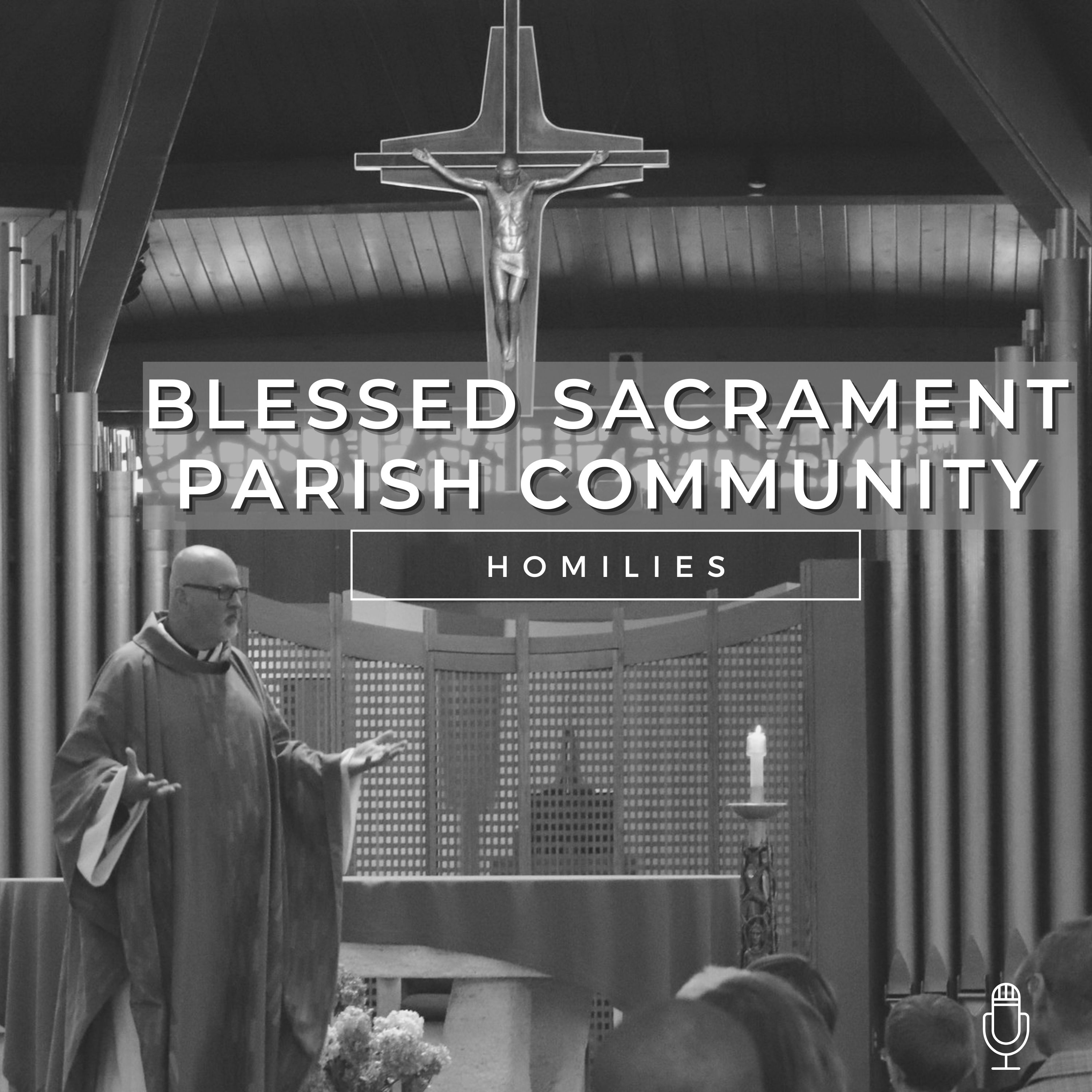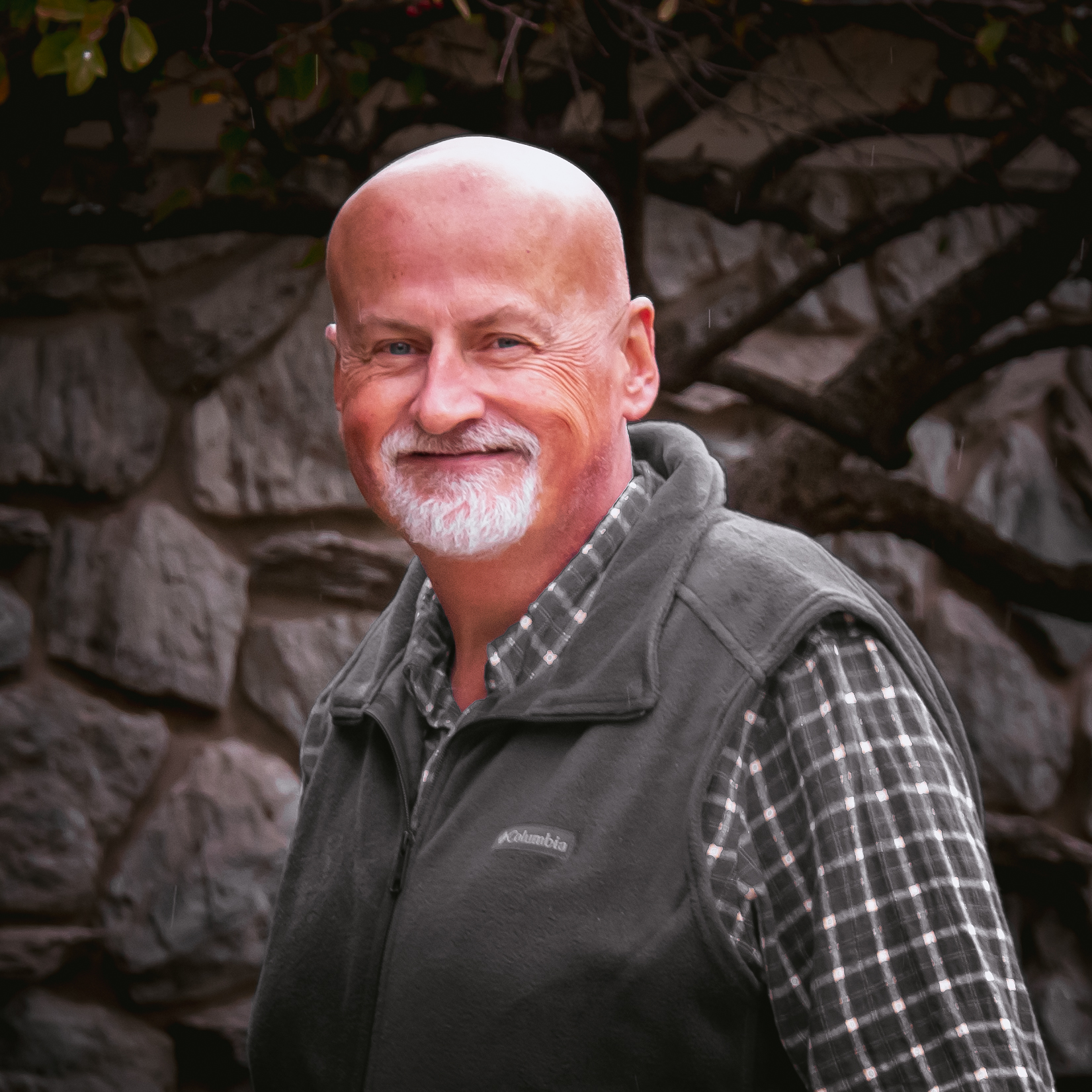Episode Transcript
[00:00:12] Speaker A: Welcome to the Blessed Sacrament Homilies podcast, where our mission is to help everyone recognize and experience the presence of God. We hope you are nourished and encouraged by the Word. Thank you for joining us.
[00:00:25] Speaker B: The Lord be with you.
A reading from the Holy Gospel according to Mark. Glory to you, Lord. As Jesus was leaving Jericho with his disciples and a sizable crowd, Bartimaeus, a blind man, the son of Timaeus, sat by the roadside, begging.
On hearing that it was Jesus of Nazareth, he began to cry out and say, jesus, son of David, have pity on me.
And many rebuked him, telling him to be silent.
But he kept calling out all the more, son of David, have pity on me.
Jesus stopped and said, call him. So they called the blind man, saying to him, take courage. Get up. Jesus is calling you.
He threw aside his cloak, sprang up, and came to Jesus.
Jesus said to him in reply, what do you want me to do for you?
The blind man replied to him, master, I want to see.
Jesus told him, go your way. Your faith has saved you.
Immediately he received his sight and followed him on the way.
The Gospel of the Lord.
[00:01:53] Speaker A: Praise to you, Lord Jesus Christ.
[00:01:56] Speaker B: I realize this is truly your favorite time of the year, for it is the time that I regale you with stories of deer camp, and I'm going to do so again.
But it really has absolutely nothing to do with deer hunting.
When I first joined the camp my first season there, it was a little intimidating.
It was the fall of 1996, and a good percentage of our members at that time had been in this camp since 1957, so they were set in their ways, and there was a pecking order of leadership.
So I, and you're not going to believe this, actually tried to stay quiet and just observe things.
And I quickly noticed that a couple of the older guys kept referring to Father Jack Johnson as Ragnar.
And I thought this was kind of an odd thing to call him, but I didn't say anything about it. And then when it happened again the next year, I finally, in a quiet moment, asked, where does that name come from?
And where it came from was one of the guys saw an article in a newspaper years before about a mountain man in the Pacific Northwest who never left the wilderness but for one day.
And this mountain man's name was Ragnar Johnson.
And the reason why he left the mountains was because he had to get the cataract taken out of his chutney.
And as soon as that surgery was done, back to the mountains he went.
Ragnar was getting rid of the blindness that kept him from seeing what he needed to see.
Well, here in the Gospel, we have Bartimaeus, who knows that in Jesus he can find what he needs.
The problem is here, this poor blind man is the one that sees the clearest.
And the ones that are following Jesus around are the ones that are truly blind because they walk past him. They don't see his suffering. They don't see everything he's going through. They don't have any pity or mercy toward him.
They simply tell them to be quiet, stop bothering Jesus, because they wanted Jesus attention, they were blind.
Well, each one of us here has blindness.
Many of us, if you're like me, are blind to those things that do us harm. Those things that we fail to recognize are actually sin.
All those ways we are broken, all those ways we continue to trip ourselves up and our blindness shows itself in the way we rationalize it. Oh, it's okay. It's really not bad. There's nothing wrong with what I'm doing. And we continue to do it. We're blind to it.
The other things that we are blind to often is the needs and suffering of others.
It's easy to put up blinders and not see. If I don't pay attention to this, I don't need to worry about it. If I don't look at it, I don't have to acknowledge it.
If I don't learn about it, it's not true.
We're blind to it.
And the best thing we can all do, the way we can see clearly, is to ask Jesus in our prayer the same thing that Bartimaeus said. Lord, I want to see.
Now, with that comes some pretty big responsibility.
Because when we see where we're broken, where we're sinful, we got to change that. Change isn't easy.
And when we see what others are going through and recognize it, we got to move to action. It's not just good enough to acknowledge it, we have to help alleviate it.
So asking to see takes on a whole lot of responsibility with it.
But the reality of clear sight is we also recognize that Christ is at work in our lives and in our midst, and our faith can get stronger and can get better. Our prayer this day and in reality every day ought to be, lord, I want to see.


